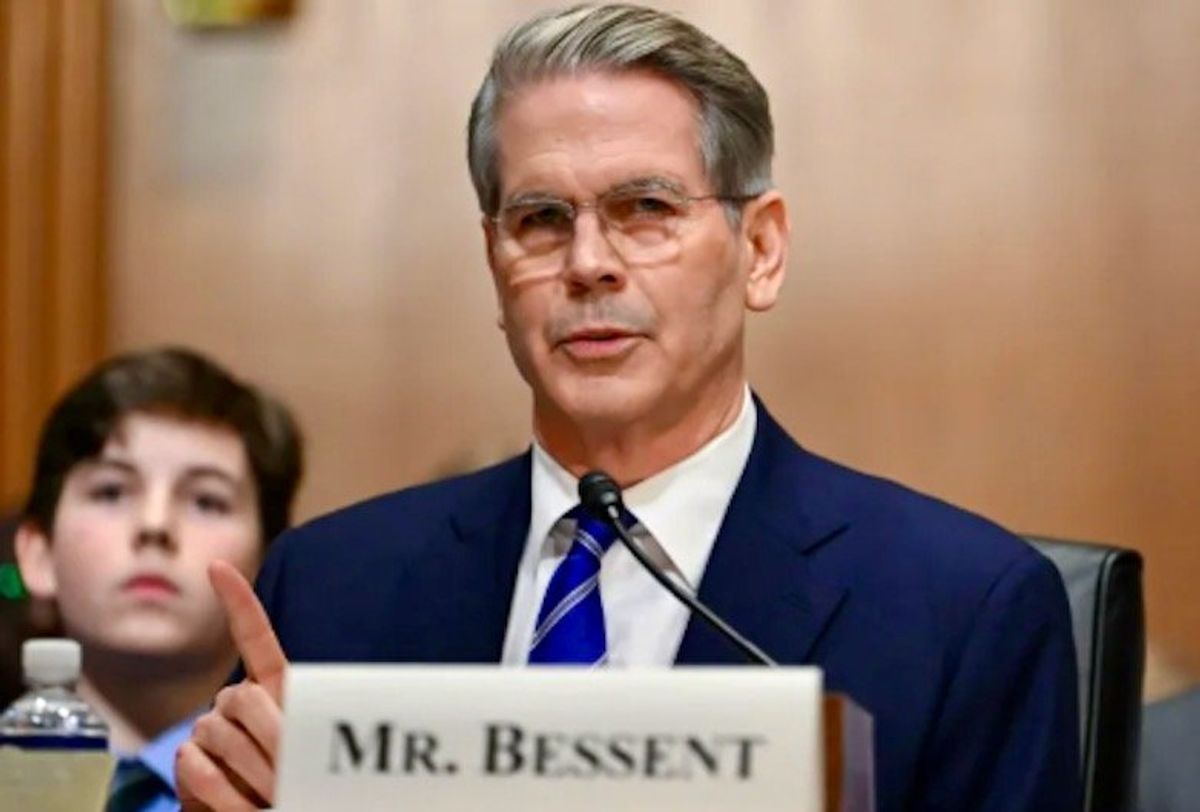
Washington Post columnist Catherine Rampell has some unkind words for the economic plan being pitched by Scott Bessent, who has been nominated by President-elect Donald Trump to be the next secretary of the treasury.
At the start of her column about Bessent, Rampell walks through the long history of budgetary tricks and gimmicks that Republican administrations have used to conceal the fiscal impact of their tax cut plans, most notably in the way that they cite the so-called "Laffer Curve" to falsely claim that tax cuts pay for themselves by generating higher revenue from increased economic activity.
With that said, Rampell believes that Bessent's economic ideas are even more "magical and more paper-thin than the past several decades of GOP budget fantasies."
Rampell then takes apart Bessent's so-called "3-3-3" plan, which she takes pains to note is not related to the "9-9-9" plan once pitched by the late Herman Cain.
"Bessent promises three things: producing an additional 3 million barrels of oil, or its equivalent, per day; raising GDP growth to 3 percent; and reducing the federal budget deficit to 3 percent of gross domestic product by 2028 (half its current level)," she explains.
As Rampell notes, oil production in America already hit record highs over the last four years and she finds it hard to believe that Bessent will be able to ramp that up by another quarter.
The columnist is particularly skeptical of the pledge to produce consistent three percent growth given both the realities of demographics in the United States and Trump's own immigration policies that will take more people out of the workforce.
ALSO READ: 'Maybe it won't work': Trump-backing billionaire says it's possible DOGE will flop
And finally, Rampell believes that Bessent's promises to slash the federal deficit will be impossible to reconcile with his desire to extend the 2017 tax cuts.
"Even Trump’s most expansive tariff hikes, which are disproportionately paid by the poor and middle class, cannot come close to filling that hole and then cutting the current deficit in half. Nor would repealing Biden-era clean-energy subsidies," she argues. "Meanwhile, Trump pledged to exempt Medicare and Social Security from budget cuts. Bessent has ruled out defense cuts and said he’d 'freeze' nondefense spending appropriated every year (FEMA, cancer research, food safety inspectors, etc.). Getting Bessent’s budget numbers to then add up — even with breakneck GDP growth — would require gutting the rest of domestic spending."
The bottom line, she argues, is that "the magnitude of cuts required to make Bessent’s arithmetic work is breathtaking."




